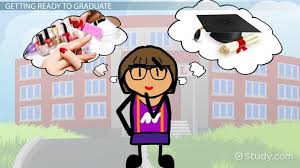The Importance of Postsecondary Education
Postsecondary education, also known as higher education, plays a crucial role in shaping individuals’ future prospects and contributing to societal development. It encompasses various educational pathways beyond high school, including colleges, universities, vocational schools, and technical institutes.
One of the key benefits of postsecondary education is the opportunity for individuals to acquire specialized knowledge and skills in their chosen fields. Whether pursuing a degree in liberal arts, sciences, engineering, business, or any other discipline, higher education provides students with the tools and resources to deepen their understanding and expertise.
Besides academic learning, postsecondary education fosters critical thinking, problem-solving abilities, communication skills, and teamwork – essential competencies that are highly valued by employers in today’s competitive job market. Graduates with a postsecondary degree are more likely to secure stable employment and earn higher salaries compared to those with only a high school diploma.
Furthermore, postsecondary education opens doors to a broader range of career opportunities and advancement possibilities. Many professions require specific credentials or certifications that can only be obtained through higher education. By investing in their education beyond high school, individuals enhance their professional growth potential and expand their career options.
Beyond individual benefits, postsecondary education contributes to economic growth and innovation at both local and global levels. A well-educated workforce drives productivity, entrepreneurship, and technological advancements that fuel economic development. Research conducted at universities also leads to discoveries that have far-reaching implications for society in areas such as healthcare, technology, and environmental sustainability.
In conclusion, postsecondary education is a transformative experience that empowers individuals to reach their full potential while driving progress in diverse fields. By recognizing the importance of investing in higher education opportunities for all individuals, we can create a more prosperous and knowledge-driven society for generations to come.
Five Essential Strategies for Thriving in Postsecondary Education
- Stay organized and manage your time effectively to balance coursework and other commitments.
- Take advantage of resources available on campus, such as tutoring services and career centers.
- Get involved in extracurricular activities or clubs to meet new people and enhance your college experience.
- Communicate regularly with professors and seek help when needed to succeed academically.
- Plan ahead for your future by exploring internships, job opportunities, or further education options.
Stay organized and manage your time effectively to balance coursework and other commitments.
Staying organized and managing time effectively are essential strategies for balancing coursework and other commitments in postsecondary education. By creating a structured schedule, setting priorities, and utilizing tools such as calendars and to-do lists, students can ensure they allocate sufficient time to study, attend classes, complete assignments, and participate in extracurricular activities. Effective time management not only helps students stay on track academically but also allows them to maintain a healthy work-life balance and reduce stress levels. By cultivating good organizational habits early on in their postsecondary journey, students can set themselves up for success and maximize their overall learning experience.
Take advantage of resources available on campus, such as tutoring services and career centers.
Taking advantage of resources available on campus, such as tutoring services and career centers, can greatly enhance the postsecondary education experience. These support services are designed to help students succeed academically and professionally by providing guidance, assistance, and valuable resources. Tutoring services offer personalized academic support to students who may need extra help with challenging coursework, while career centers offer guidance on career exploration, resume building, job search strategies, and networking opportunities. By utilizing these resources, students can strengthen their skills, overcome obstacles, and better prepare themselves for future academic and professional endeavors.
Get involved in extracurricular activities or clubs to meet new people and enhance your college experience.
Engaging in extracurricular activities or joining clubs during your postsecondary education can significantly enrich your college experience. By participating in these activities, you not only have the opportunity to meet new people and form lasting friendships but also to develop valuable skills outside the classroom. Extracurricular involvement allows you to explore your interests, expand your social network, and create memorable experiences that contribute to a well-rounded and fulfilling college journey. Embracing these opportunities can lead to personal growth, enhanced communication abilities, and a sense of belonging within the campus community.
Communicate regularly with professors and seek help when needed to succeed academically.
Regular communication with professors and seeking help when needed are essential strategies for academic success in postsecondary education. By maintaining open lines of communication with professors, students can clarify course material, seek guidance on assignments, and deepen their understanding of complex topics. Seeking help when facing challenges demonstrates proactive learning behavior and a commitment to academic excellence. Professors are valuable resources who can provide personalized assistance, feedback, and support to help students overcome obstacles and thrive in their educational journey.
Plan ahead for your future by exploring internships, job opportunities, or further education options.
When considering postsecondary education, it is essential to plan ahead for your future by exploring internships, job opportunities, or further education options. By engaging in internships, you can gain valuable hands-on experience in your field of interest and build professional connections that may lead to future employment opportunities. Researching job prospects and potential career paths can help you make informed decisions about your educational choices and tailor your academic pursuits to align with industry demands. Additionally, exploring further education options, such as graduate programs or specialized certifications, can enhance your skills and qualifications for advanced career opportunities. Planning ahead and actively seeking out these opportunities can set you on a path towards a successful and fulfilling postsecondary education journey.

